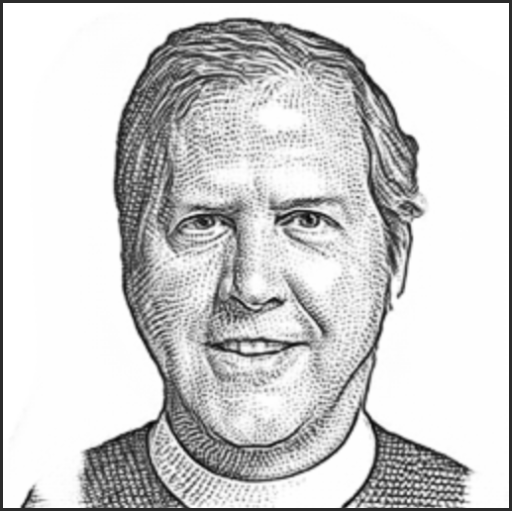 Throughout the Bible God is known by many names – Yahweh, Elohim, or Jehovah. God is said to our be rock, our strength, and our fortress. But the most beloved image of all is to say that the Lord is my shepherd.
Throughout the Bible God is known by many names – Yahweh, Elohim, or Jehovah. God is said to our be rock, our strength, and our fortress. But the most beloved image of all is to say that the Lord is my shepherd.
Unfortunately, shepherds are almost extinct. Many of us have never met a shepherd. Still, the pastoral image of a shepherd speaks deeply to us, even if we have lived our lives in suburbs or cities.
I have been fortunate to have met several shepherds. My first encounter came on a Saturday when I was seventeen and hitchhiking across Scotland.
A shepherd on his day off, stopped his battered Land Rover and gave me a ride to a nearby village, where he introduced me to local shepherds and farmers, who selling sheep, goats, pigs, chickens and guinea hens. I could tell that he was a good shepherd by the way he loved the animals, even on his day off.
The last shepherd that I met was far different. He was a grizzled, shaggy-haired man, who more closely resembled a convict than a lover of lambs.
I spotted him while I was hiking the Camino de Santiago de Compostela in Spain. When he saw me trying to photograph him, he abandoned his sheep and ran after me hurling rocks and shouting insults. I suspect that he was not a good shepherd.
In mainline churches, the Fourth Sunday after Easter is known as Good Shepherd Sunday. The prayers, Bible readings and hymns such as “The King of Love My Shepherd Is” all refer to God as our shepherd and Jesus as the Good Shepherd.
For the first 600 years of the Church’s life, the predominant way of depicting Jesus in Christian art was as the Good Shepherd. The Bible tell us that we are made in God’s image. Hence, we, too, are called to shepherd those around us.
As we parent and grandparent, care for aging relatives, or assist employees, colleagues, classmates and neighbors during difficult times, we carry our shepherd’s crook in hand as we offer to help. Often, our mere presence brings comfort to someone undergoing an ordeal.
Every church that searches for a good priest or minister seeks a good shepherd. An online survey listed all the qualities that people expect from the “perfect pastor.”
• He is twenty-eight years of age, but he’s been preaching for thirty years.
• He works from 8 a.m. until midnight, but exercises wonderful selfcare.
• He frequently condemns sin, but never upsets anyone.
• He wears beautiful clothes, buys interesting books, drives a nice car, gives generously to the poor and has a low salary.
• He makes fifteen pastoral visits each day, visits shuts-ins and those hospitalized, spends all of his time evangelizing the unchurched and is always in the office when needed.
• He is also handsome.
Lest we romanticize sheep and shepherds, we must recall that being a shepherd was the most despised profession in the ancient Near East. Shepherding was dirty work. If you were a shepherd, you couldn’t attend worship services and practice the Jewish faith.
Thus, the author of the Gospel of Luke shocked his readers when he noted that the lowly, despised shepherds were the first to learn that the Messiah had been born in Bethlehem.
Shepherds appear throughout the Bible. Abel, Esau, Abraham, Jacob, Saul, David, Elijah, and Amos all served as shepherds. They remind us that God often speaks to us through the lowly and marginalized.
Moses also was a shepherd. After he toiled for forty years in this lowly job, he wandered one day to the edge of the wilderness and climbed Mt. Horeb, which means “wasteland” in Hebrew.
It was there that God spoke to him from a burning bush, summoning Moses to use his skills as a shepherd to return to Egypt and lead the Israelites like a flock of sheep from captivity as slaves to freedom to in the Promise Land. There is something about shepherding that equips us with skills to lead and care for others.
Truth be told, we all need a guide, someone to shepherd and point the way. In the tenth chapter of John’s Gospel, Jesus assures us that he is “the good shepherd. I know my own and my own know me.” “…they will listen to my voice.”
Jesus came to bring us abundant life, which is also mentioned in the tenth chapter. Abundant life is excessive life, life at its fullest. God is always trying to make humans more human. Irenaeus said, “The glory of God is a human fully alive.”
The good shepherd leads the sheep beside still waters and to lie down in green pastures. A green pasture is not just a July meadow, it can be an orchestra concert, a brilliant tennis match, a day spent sailing on the Sound or an afternoon reading Shakespeare aloud with friends. It is whatever refreshes our soul.
Jesus incarnated Psalm 23, which is the psalm of psalms. If you memorize one psalm, memorize it. If you ever undergo surgery, pray it before your operation. The 23rd Psalm is the psalm most likely to be remembered by the aged and the dying.
I once prayed it with a woman who was 109. In a world of fast cars, super highways, and the internet, a single line from Psalm 23 transports us three thousand years ago to ancient Palestine and connects us to the God who goes to great stretches to tend, rescue and keep each of us safe.





